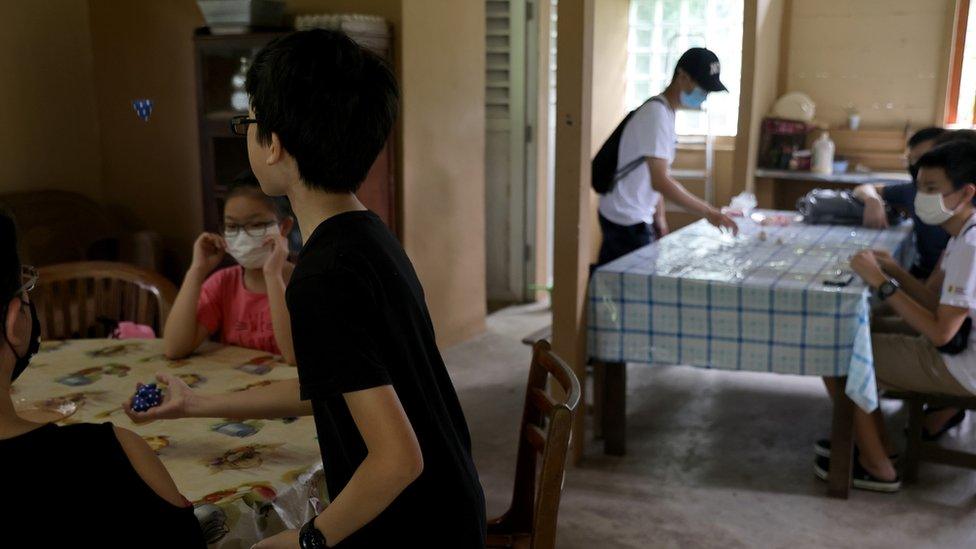Singapore offers 'pandemic baby bonus' to boost births
- Published

Children playing a traditional game in Singapore, which has one of the world's lowest birth rates
Singapore is offering a one-off payment to encourage people to have babies during the coronavirus pandemic.
The worry is that citizens are putting off parenthood as they struggle with financial stress and job layoffs.
Details of the amount that could be paid have yet to be released. It is in addition to several hefty baby bonuses offered by the government.
Singapore has one of the lowest birth rates in the world, which it has struggled to boost for decades.
It is in stark contrast to some of its neighbours such as Indonesia and the Philippines, which are facing the prospect of a massive spike in pregnancies from their coronavirus lockdowns.
"We have received feedback that Covid-19 has caused some aspiring parents to postpone their parenthood plans," Singapore's Deputy Prime Minister Heng Swee Keat said on Monday.
Mr Heng said more details about amounts and how they will be paid would be announced at a later date.
Singapore's current baby bonus system provides eligible parents up to S$10,000 ($7,330, 拢5,644) in benefits.
Singapore's fertility rate touched an eight-year low in 2018, according to government data, at a rate of 1.14 births per woman.
Many Asian countries face a similar issue of falling fertility rates, which could worsen during the pandemic downturn.
Earlier this year, China's birth rate fell to its lowest since the formation of the People's Republic of China 70 years ago. This came despite the easing of the much criticised one-child policy.
Baby boom
But some of Singapore's neighbours face the opposite problem.
In the Philippines, unintended pregnancies are forecast to spike by almost half to 2.6 million if Covid 19-induced movement restrictions remain until year-end, according to the United Nations Population Fund.
"These numbers are an epidemic in itself," Aimee Santos, a spokesperson for UN agency in the Philippines, said last month.
The Philippines has the second-highest population in South East Asia at 108.4 million. It has one of the region's worst virus outbreaks with more than 307,000 infections.
"These issues of women and children have largely remained invisible during the pandemic. It's time to put them front and centre," Senator Risa Hontiveros, head of the chamber's committee on women, said last month.
She has backed calls for more female officials in the nation's task force against the coronavirus outbreak.